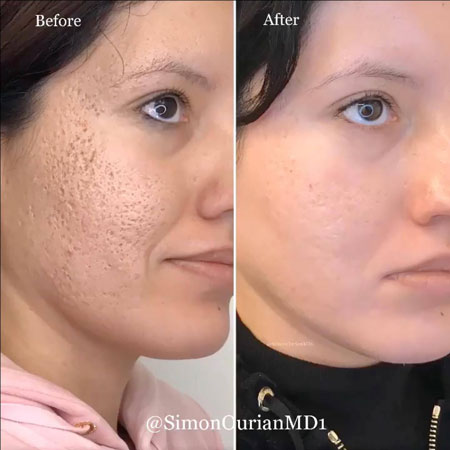Introduction
Acne is a skin issue that can leave marks known as acne scars. These scars can have an impact on how we look and feel about ourselves. Though dealing with acne and its scars can be challenging there are ways to significantly improve the condition of your skin. In this article we’ll provide you with steps to manage and overcome acne while also addressing the issue of scars helping you achieve healthier and scar free skin.
How to Get Rid of Acne and Acne Scars?
Getting rid of acne and its scars involves a process that includes preventing breakouts as well as treating existing scars. Here’s a step by step guide on how to handle both issues:
- Preventing and Treating Acne
- Establish a Skincare Routine: Begin with a skincare routine that involves gentle cleansing using non-comedogenic moisturizers and applying sunscreen when heading outdoors.
- Utilize Over the Counter Products: Look for cleansers, spot treatments, or serums containing ingredients such as salicylic acid, benzoyl peroxide, or alpha hydroxy acids (AHAs) to help manage acne.
- Prescription Medications: If you’re dealing with acne it’s best to consult a dermatology doctor who can provide you with oral medications like retinoids, antibiotics, or hormonal treatments.
- Lifestyle Habits: Taking care of your diet, exercising regularly, and managing stress helps reduce the appearance of acne. It’s advisable to avoid smoking and excessive alcohol consumption, too.
- Preventing Scarring: It’s crucial to refrain from picking or squeezing acne lesions as this could worsen the scars.
- Fading Acne Scars
- Topical Scar Fading Creams: Incorporating products containing niacinamide, vitamin C, or peptides into your skincare routine can gradually diminish the appearance of scars.
- Chemical Peels: Dermatology treatment providers have the expertise to perform chemical peels that exfoliate the skin to eliminate damaged layers and stimulate collagen production to reduce the appearance of scars.
- Microneedling: This procedure involves injuring the skin to activate the body’s natural healing response thus assists in gradually reducing the appearance of scars.
- Dermal Fillers: To address pitted scars, providers may opt for fillers that raise and smoothen the surface of one’s skin. For his clients, Dr. Simon Ourian uses his proprietary Neustem™ fillers.
- Laser Therapy: A range of laser treatments are available to target tissues by encouraging collagen production and reducing the visibility of scars. At Epione Beverly Hills, we have seen massive success in using Coolaser™ to reduce the appearance of acne scars.
- Silicone Products: Consistently using silicone sheets or gels can help flatten and fade scars over time.
- Get Professional Advice: It’s always a good idea to consult doctors or skincare professionals who can provide sound recommendations especially for one’s specific skin type and the severity of scarring.
Which Products Are Recommended for Acne and Acne Scars?
The effectiveness of products for treating acne and acne scars can vary based on a number of factors such as skin type and the extent of the issues. Here are some suggested products that address one’s concerns:
For Acne
- Salicylic acid-containing cleansers may help exfoliate the skin, clear out pores, and reduce inflammation.
- Benzoyl Peroxide effectively kills bacteria that cause acne while also reducing inflammation. It is available in creams, gels and spot treatments.
- Alpha Hydroxy Acids (AHAs) promote cell turnover, unclog pores, and improve overall skin texture. Common AHAs include acid and lactic acid.
- Prescription-based topical retinoids help prevent blockages and reduce inflammation by encouraging cell turnover.
- Oil-free moisturizers keep the skin adequately moisturized without triggering excess oil production even if you have oily or acne-prone skin.
- Sunscreen is essential for protecting the skin from sun damage. It is particularly crucial to avoid sun damage when using acne treatments.
When it comes to treating acne scars what are the options you can consider?
- Vitamin C Serum may help fade hyperpigmentation and improve the appearance of scars over time.
- Niacinamide is useful in reducing inflammation and enhancing the skin’s barrier which is beneficial for managing scars.
- Products with peptides stimulate collagen production, ultimately improving the texture of scars.
- Chemical exfoliants such as glycolic acid and salicylic acid are effective in promoting cell turnover which aids in scar fading.
However, keep in mind that the effectiveness of the above products may vary depending on your skin type, the type of acne you have, and the severity of your scarring. It’s always a good idea to consult a doctor or provider who can provide recommendations based on your specific needs and concerns.
Schedule your consultation appointment with us: click here.
